The 2025 Annotated Blue Note Tone Poet Release Schedule
How Do You Plan On Sneaking All These GREAT Records Into Your House?
Happy Tone Poet Announcement Day! Blue Note’s audiophile jazz vinyl series enters its sixth year with a new twist. In addition to the twenty-four new Tone Poet titles scheduled for 2025, Blue Note is launching a Tone Poet subscription service called Tone Poet Society. From their press release:
Tone Poet Society members can select between four tiers with monthly, 3-month, 6-month, or annual subscriptions that offer increasingly more savings and benefits. All members will receive two Tone Poet titles per month from the Blue Note Store, with exclusive perks, including free shipping prior to retail release, special store discounts, behind-the-scenes content, access to quarterly Tone Poet Society Exclusive releases, and more. Learn more at TonePoetSociety.com…The Q1 Tone Poet Society Exclusive release is pianist Walter Davis Jr.’s hard bop gem Davis Cup.
As the Tone Poet series continues to delve even deeper into the Blue Note vaults, the chosen titles range from long out-of-print favorites to obscurities that will delight jazz lovers, collectors, and trainspotters. Here’s the 2025 Tone Poet graduating class, annotated with the musicians, notes, fun facts, and an embedded playlist so you can listen in anticipation while you start assembling your next Kallax shelf.
January 3, 2025
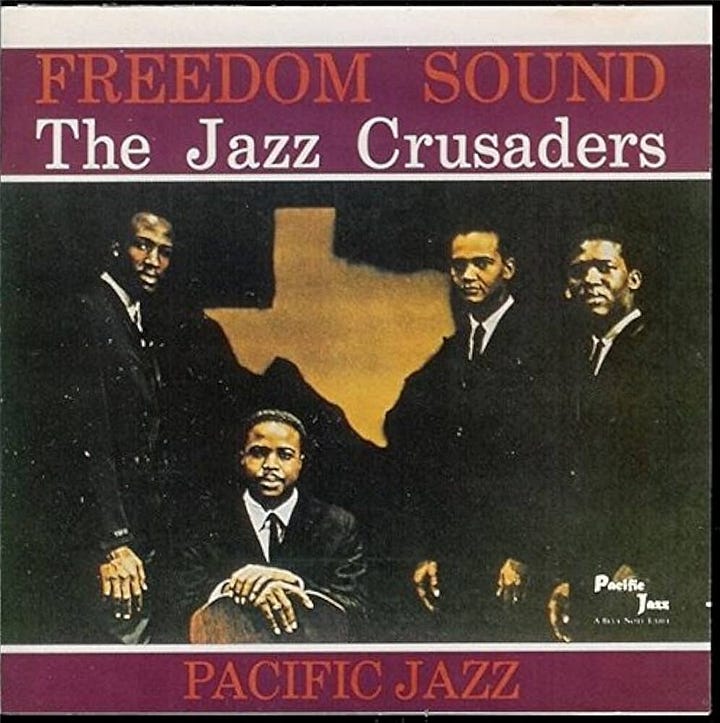

The Jazz Crusaders – Freedom Sound - Long before The Crusaders caused a mini baby boom with the irresistibly sexy grooves of "Street Life" in 1979, they were The Jazz Crusaders. This group of friends departed their home state of Texas in 1960, bound for Los Angeles, with little more than their talent, instruments, dreams, and a station wagon. Once settled in LA, they’d begin a decade-long, sixteen-album spree with Pacific Jazz in 1961 that kicked off with Freedom Sound. The title track—an early civil rights jazz anthem—was the first of seventeen singles they’d release on Pacific Jazz over the next decade, blending clever musicianship with accessibility. Blues, R&B, and soul were on the menu, though their earliest records, like Freedom Sound, leaned into hard bop, HARD. I would say more now, but that would spoil the liner notes I enjoyed writing for this terrific record. If your opinion about their music is based on what you've heard after they dropped "jazz" from their crusade, you're in for a fantastic surprise with Freedom Sound!
Wayne Henderson – trombone
Wilton Felder – tenor saxophone
Joe Sample – piano
Roy Gaines – guitar (tracks 1 & 4)
Jimmy Bond – bass
Stix Hooper – drums
Andrew Hill - Grass Roots - Andrew Hill’s seven-year stretch at Blue Note from 1963-1970 is among the most creative runs in jazz. He recorded over a dozen innovative sessions, including the iconic Point of Departure. Critics, musicologists, and jazz enthusiasts wax poetic over Hill’s genius, with some (including me) putting Point of Departure in their personal Top Ten. Many newcomers to Hill’s music, however, find a steep learning curve, as Hill’s complex compositions and edgy inside/outside proclivities prove confusing and mysterious and occasionally send them scrambling under the bed for safety. Fortunately, there’s Grass Roots, an August 1968 session that’s the ideal point of entry to the music of Andrew Hill. While it’s 100% through and through an Andrew Hill record, the intricacies and sharp elbows are wrapped in an accessible modal/hard bop presentation. The melodies are all approachable, and some are even hummable. The rhythms on Grass Roots are also toe-tappingly infectious, and it’s within those rhythms that the magic of Hill’s music may reveal itself, especially to younger generations of listeners who’ve grown up with popular music that has emphasized rhythmic hooks over melody. Grass Roots sets a high bar for essential jazz reissues on the third day of the new year! Fun fact: Hill took a swing at several of these tracks in April 1968 with a different set of musicians that included Woody Shaw, Jimmy Ponder, Reggie Workman, Idris Muhammad, and Frank Mitchell. You can hear these alternate takes/works-in-progress on the CD edition and digital platforms.
Andrew Hill - piano
Lee Morgan - trumpet
Booker Ervin - tenor saxophone
Ron Carter - bass
Freddie Waits - drums
February 7, 2025
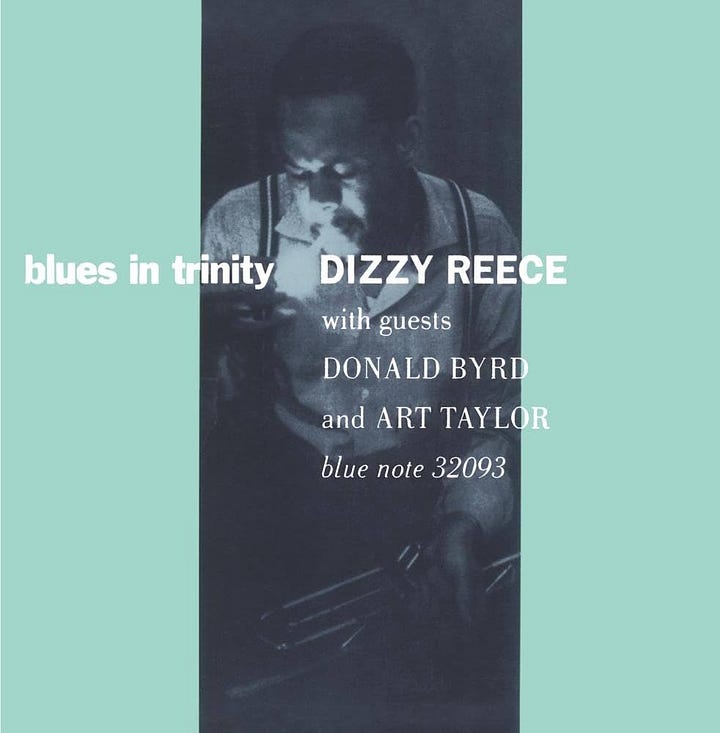
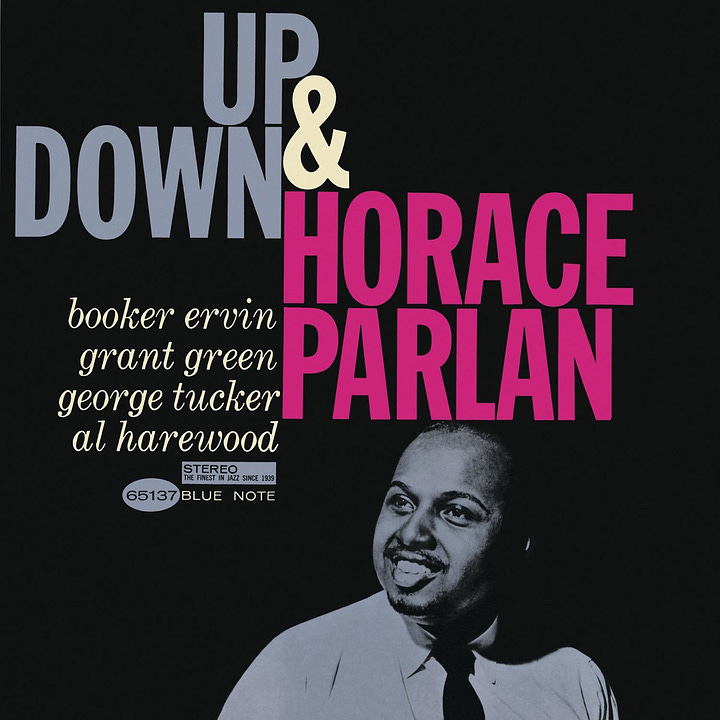
Dizzy Reece – Blues In Trinity - Dizzy Reece’s Star Bright got the Blue Note Classic treatment in 2023, which put “the other Dizzy” on the radar of many jazz fans previously unfamiliar with this excellent trumpet player. Blues in Trinity—Dizzy’s first for Blue Note—was recorded at Decca Studios in London a year before Star Bright with a mix of American and European musicians. Stealing the show (as he’s wont to do) is England’s most famous jazzman, Tubby Hayes. Here’s an excerpt from the liner notes:
Edward Brian Hayes was nicknamed “Tubby” in that charming, self-deprecating way musicians will celebrate body types and physical attributes that models and athletes work overtime to overcome. With a hearty appetite for both food and alcohol, combined with a boyish face and easy laugh, he looked about as jazzy as he did a fashion model or superstar athlete. It’s not clear whether he relished deceiving audiences and critics with his cherubic visage and stout physicality, but the sound accompanying a Tubby Hayes solo was often that of an entire room of jaws hitting the floor simultaneously. In this “don’t judge a book by its cover” scenario, Tubby’s nickname and physical manifestation were forgotten in the presence of his unparalleled technique, delivering seemingly impossible solos with reckless precision.
Vinyl editions of Blues in Trinity are scarce and pricey—a Tone Poet edition is welcome news!
Dizzy Reece - trumpet
Donald Byrd – trumpet
Tubby Hayes – tenor saxophone
Terry Shannon – piano
Lloyd Thompson – bass
Art Taylor – drums
Horace Parlan – Up & Down - Pianist Horace Parlan had a busy fourteen months between February 1960 and June 1961, leading six sessions for Blue Note. His regular wingmen were bassist George Tucker and drummer Al Harewood, who recorded Us Three, one of Blue Note’s best-known trio albums. Parlan brought additional Blue Note luminaries aboard to broaden his sound through quartets or quintets, continuing to fuse soul jazz and hard bop in his original compositions. Some of the fingers on Parlan’s right hand were compromised from childhood polio, but that’s not apparent when listening to him wail. His left-hand-driven method uses crossover techniques on lead lines, and he’s an ambidextrous percussive powerhouse when cutting loose with chords. Parlan combines standards and originals that fuse soul jazz and hard bop on Up & Down, his second-to-last for Blue Note and the first of two sessions with tenorist Booker Ervin and Blue Note “house guitarist” Grant Green. Someone may have accidentally mislabeled the “decaf” coffee pot at this session—other than the ballad “Lonely One,” nobody sounds ready to settle down anytime soon. Parlan (and Green) aren’t known for speedy, flashy solos, so while the hard bop stays largely uptempo, the solos stay tasteful and restrained.
Horace Parlan - piano
Booker Ervin - tenor saxophone
Grant Green - guitar
George Tucker - bass
Al Harewood - drums
March 7, 2025
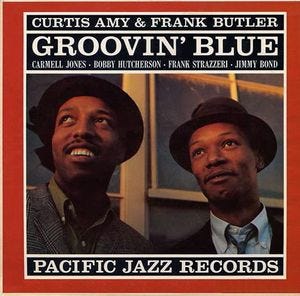
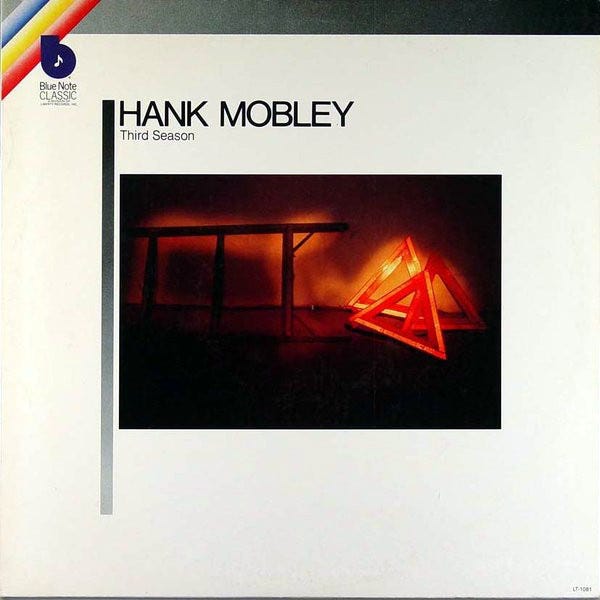
Curtis Amy & Frank Butler – Groovin’ Blue - Two years before Curtis Amy teamed up with tragic trumpeter Dupree Bolton for Katanga! (a formerly obscure rarity liberated by Tone Poet a few years back that’s now an essential in any serious jazz library), he recorded five other sessions for Pacific Jazz. Groovin’ Blue holds two unique distinctions in Amy’s discography: it is vibraphonist Bobby Hutcherson’s first-ever recording session, and it’s the only Curtis Amy recording on Pacific Jazz that’s 100% comprised of Amy’s original compositions. Though Groovin’ Blue doesn’t contain epics like Katanga’s “Native Land”—the apex of Curtis Amy’s jazz career—it’s an excellent hard bop record, highlighting Amy’s talents as a player and composer. It’s apparent when listening to why Frank Butler gets co-billing on the marquee. He’s not only mixed prominently, but Butler’s intricate topkit work is GLORIOUS.
Curtis Amy - tenor saxophone
Frank Butler - drums
Carmell Jones - trumpet
Bobby Hutcherson - vibraphone
Frank Strazzeri - piano
Jimmy Bond - bass
**NOTE: There’s no legit digital audio embed available for the Curtis Amy, but that situation will be rectified upon release date**
Hank Mobley – Third Season - This record hails from the Cretaceous Era of Hank Mobley’s career (see this post for details):
Paraphrasing: Mobley’s writing during the latter era of his career incorporated the modal influences from Miles Davis’s pioneering Kind of Blue. Mobley’s “middleweight” style also evolved, with his tone becoming rougher around the edges and playing less predictably behind the beat. At the same time, Mobley began incorporating tension and release building blocks while utilizing emotional bursts of notes emphasizing registers at both ends of the horn. These transformations weren’t radical—he still sounded like Hank Mobley—but they were demonstrative that stylistically and compositionally, Mobley had leveled up. He led an excellent sextet for this February 1967 session, working with longtime cohorts Cedar Walton and Lee Morgan and introducing newcomer Sonny Greenwich on guitar. We can look forward to a new and improved album cover on the Tone Poet edition, though improvement is a low bar. If anyone can explain what the hell this is supposed to be on the original jacket, I’m all ears. Those LT/Classics covers from 1980 (mostly) look like an OCD photographer with Windham Hill aspirations ate a tab of bad acid.
Hank Mobley – tenor saxophone
James Spaulding – alto saxophone
Lee Morgan – trumpet
Cedar Walton – piano
Sonny Greenwich – guitar
Walter Booker – double bass
Billy Higgins – drums
April 4, 2025
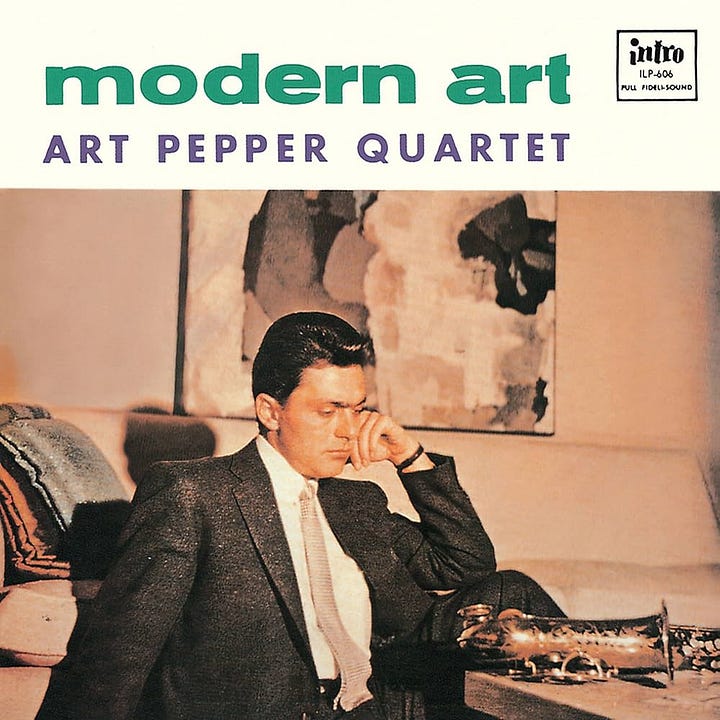
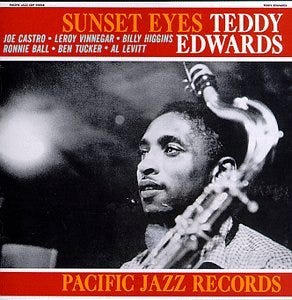
Art Pepper – Modern Art - A few weeks before the legendary tale of Art Pepper Meets the Rhythm Section, Pepper led this quartet date for the Intro label. This session is essential if you dig Pepper’s cool, pre-incarceration alto sound! It’s not just because it’s a beautifully recorded, well-played quartet date with well-chosen standards. “Blues In” and “Blues Out,” which feature Pepper dueting with bassist Ben Tucker, are Pepper soliloquies spinning emotional tales of love, loss, and longing that offer only fleeting glimpses of Pepper’s emotional anxiety: Have I gone too far? Did I say too much? Is it too late to apologize? How badly did I screw up this time? Answers would eventually come through his horn, but in late 1956, Pepper still asked many questions. A brilliant record, long overshadowed by the iconic masterpiece that followed—both will make an Art Pepper believer out of anybody.
Art Pepper - alto saxophone
Russ Freeman - piano
Ben Tucker - bass
Chuck Flores - drums
Teddy Edwards – Sunset Eyes - The Tone Poet series isn’t just about optimal sonic quality for classic jazz and out-of-print titles from known artists. A long-running series goal is liberating the hidden gems and obscurities that deserve another day in court for those who don’t know them or missed them the first time. Case in point—many more jazz enthusiasts have heard OF Teddy Edwards’s Sunset Eyes than have HEARD Sunset Eyes. Kudos to team Tone Poet for going straight for the jugular with his best record. Sunset Eyes is a Pacific Jazz session from 1960 with plenty of East Coast, hard bop DNA offsetting the West Coast vibes. While this album sounds nothing like Hank Mobley’s Soul Station, there’s a similar appeal. It’s a brilliantly played quartet date led by a saxophonist who deserves more than history has given him, with enough depth to please connoisseurs and accessible, catchy melodies to attract casuals.
Teddy Edwards - tenor saxophone
Ronnie Ball (track 1), Joe Castro (tracks 2 & 4-7), Amos Trice (tracks 3 & 8) - piano
Leroy Vinnegar (tracks 2-8), Ben Tucker (track 1) - bass
Billy Higgins (tracks 2-8), Al Levitt (track 1) - drums
**NOTE: There’s no legit digital audio embed available for Teddy Edwards ‘Sunset Eyes,’ but that situation will be rectified upon release date**
May 2, 2025
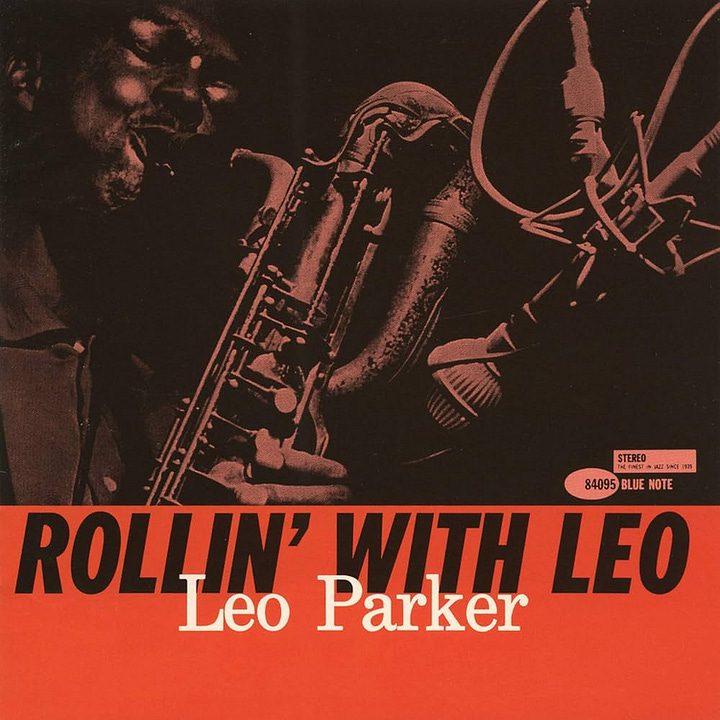
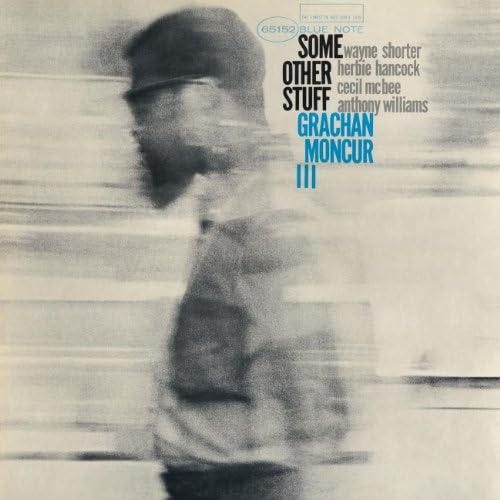
Leo Parker – Rollin’ With Leo - An obscurity worth hearing! Baritone saxophonist Leo Parker was a fixture in several old-school bebop bands, having played with legends like Billy Eckstine, Dizzy Gillispie, and Coleman Hawkins. He cut two albums for Blue Note as a leader in 1961 before succumbing to addiction in 1962 at age 36. Both recordings remained in the vaults until the 80s, with this one, Rollin’ With Leo, being the better of the two. It’s a hard-swinging blues/bop affair with Parker (no relation to Charlie) surrounded by some lesser-known but ACE players. Don’t overpay for a Japanese import, or lower yourself to accepting a craptastic digitally-sourced Scorpio RINO (Record In Name Only)—Tone Poet to the rescue!
Leo Parker - baritone saxophone
Dave Burns - trumpet
Bill Swindell - tenor saxophone
John Acea - piano
Stan Conover (tracks 3 & 4), Al Lucas (tracks 1, 2 & 5-8) - bass
Wilbert Hogan (tracks 1, 2 & 5-8), Purnell Rice (tracks 3 & 4) – drums
Grachan Moncur III – Some Other Stuff - I’m going to let you in on a music industry secret: the word “interesting” when used in response to a query about what one thinks of an artist/album/song actually means “sucks.” Giving a blunt assessment like “that record sucks” is bad form, but saying something like, “interesting, but it went over my head and I need more time with it” is hard to argue with when dodging an uncomfortable question. So when discussing radical boundary pushers like Grachan Moncur III, if someone tells you they find his groundbreaking albums like Evolution or Some Other Stuff “interesting,” you’ll know where they REALLY stand. Because this record isn’t “interesting” at all—it’s a deeply engaging, challenging avant-garde record that doesn’t sound the same to everyone. I love it. It’s like jazz as a full-contact sport, without referees or rules to spoil the fun. So put on your protective gear before you drop that needle! Then prepare for adventure…
Grachan Moncur III – trombone
Wayne Shorter – tenor sax
Herbie Hancock – piano
Cecil McBee – bass
Tony Williams – drums
June 6, 2025
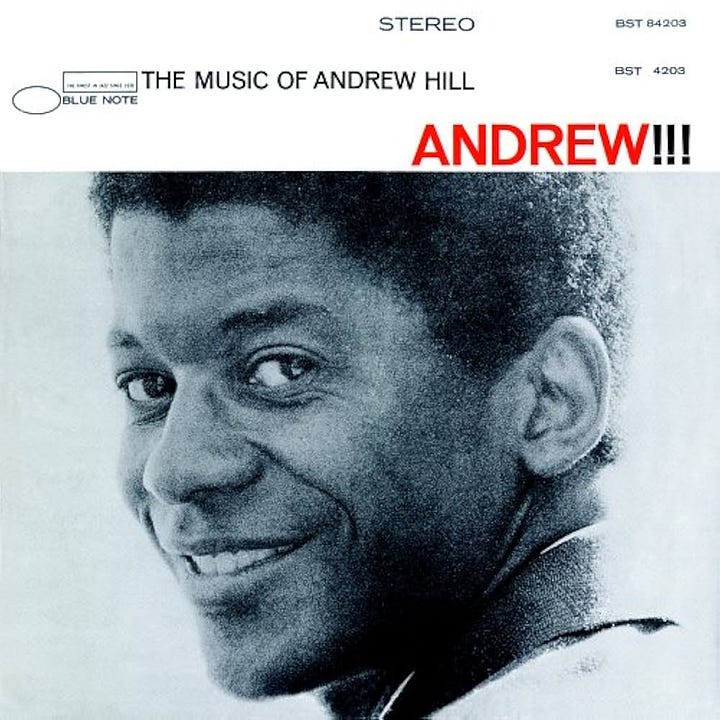
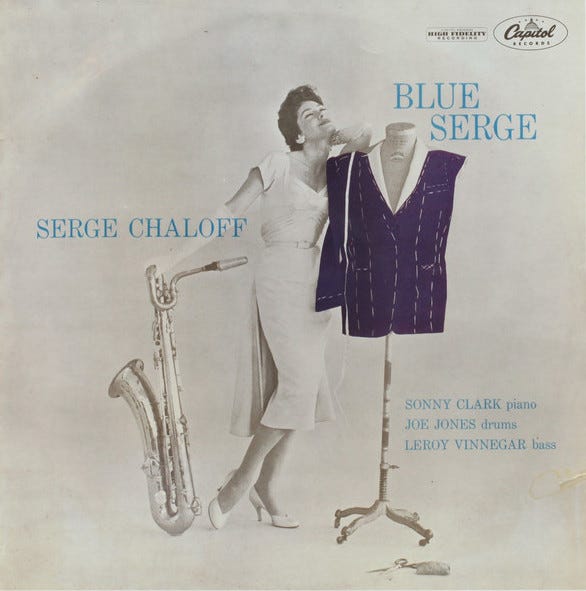
Andrew Hill — Andrew!!! - Hill’s run of albums for Blue Note from 1963 to 1970 was extraordinary. Each was uniquely intriguing as Hill pushed boundaries until he established new ones, then broke through those and began the cycle again. Yet Hill never went over the edge into untethered free playing, even when his knottier compositions had elusive tonal or rhythmic centers. Andrew!!! mesmerizes as cascades of notes emerge from the ether, taking form as Hill imagines and explores before disappearing just as mysteriously as they arrived. Hill’s approach isn’t arbitrary, however. He veers into occasional outside playing, but it’s not dissonant or atonal, and many pretty melodies can be found if you have the patience to listen for them. Even the presence of Sun Ra tenorist John Gilmore, who might set off alarm bells for those allergic to the avant-garde, doesn’t make this a free jazz session—much of what’s here is quite beautiful. And the presence of Bobby Hutcherson brings a spacey, ethereal vibe that takes the edge off as well. This is a challenging but highly worthwhile record. Start with Grass Roots if you’re new to Andrew Hill. If you don’t own Point of Departure, that should be next. Followed by Black Fire. After that, Andrew!!! is a great title to keep you running up that Hill!
Andrew Hill - piano
John Gilmore - tenor saxophone
Bobby Hutcherson - vibraphone
Richard Davis - double-bass
Joe Chambers - drums
Serge Chaloff – Blue Serge - The 2025 Tone Poet lineup showcases several titles less familiar to casual jazz listeners. I don’t have much to say about Blue Serge (yet), only that the well-worn copy on my shelf has been well-loved, but I’m looking forward to an upgrade! If you decide to take a chance on Blue Serge and then wonder, “where has this record been all my life?” you’ll be in great company.
Serge Chaloff – baritone saxophone
Sonny Clark – piano
Philly Joe Jones – drums
Leroy Vinnegar – bass
July 4, 2025
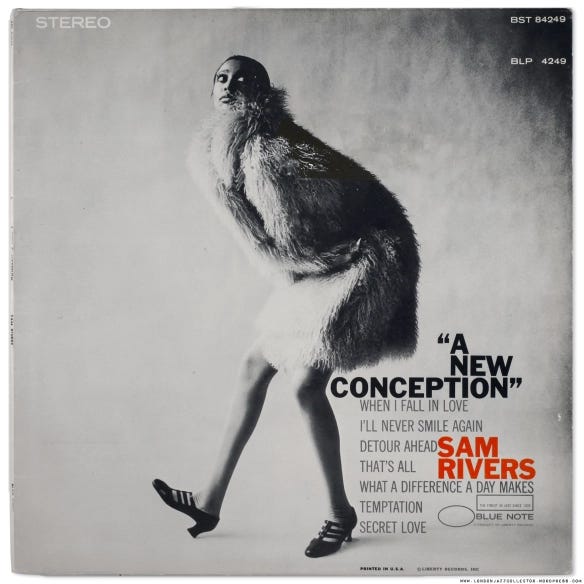
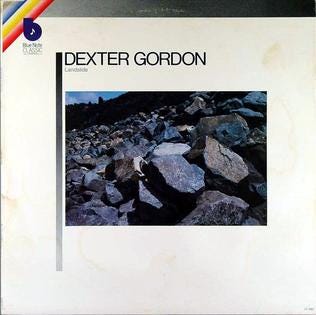
Sam Rivers – A New Conception - Bravo! Rivers wasn’t the right guy for the sax chair in Miles Davis’s Second Great Quintet, but that left him free to create four superb and unique Blue Note albums. A New Conception is an avant-garde Trojan Horse. Rivers and Co. lull the listener into a false sense of straightforwardness as they take well-known (and well-worn) standards and reimagine them. I don’t mean reimagining, like how the King Kong movies get remade every 20 years with the same underlying story with updated graphics. Imagine Wuthering Heights if reimagined as a spaghetti western starring Christopher Walken and Melissa McCarthy. In other words, Rivers has a GREAT (re)imagination.
Sam Rivers – tenor saxophone, soprano saxophone, flute
Hal Galper – piano
Herbie Lewis – bass
Steve Ellington – drums
Dexter Gordon – Landslide - The Jazz and Coffee Guide to Listening to Dexter Gordon’s Landslide: Forget that this record compiles three sessions recorded in 1961/62. Ignore the inconvenient fact that these sessions were originally vaulted when initially recorded, as decisions to shelve a session weren’t necessarily related to the quality of the music. Instead, imagine seeing news items and press headlines pouring into your various feeds about previously unheard Dexter Gordon recordings from his golden Blue Note 60s era, with some of the best players of the day. Then, listen without judgment or expectation.
Dexter Gordon – tenor saxophone
Dave Burns (tracks 5–7), Tommy Turrentine (tracks 2–4) – trumpet
Sonny Clark (tracks 5–7), Kenny Drew (track 1), Sir Charles Thompson (tracks 2–4) – piano
Ron Carter (tracks 5–7), Paul Chambers (track 1), Al Lucas (tracks 2–4) – bass
Willie Bobo (tracks 2–4), Philly Joe Jones (tracks 1 & 5–7) – drums
August 1, 2025
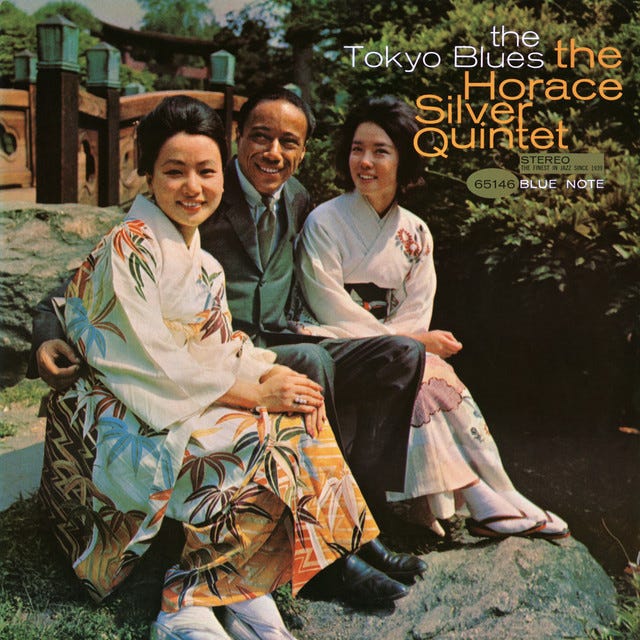
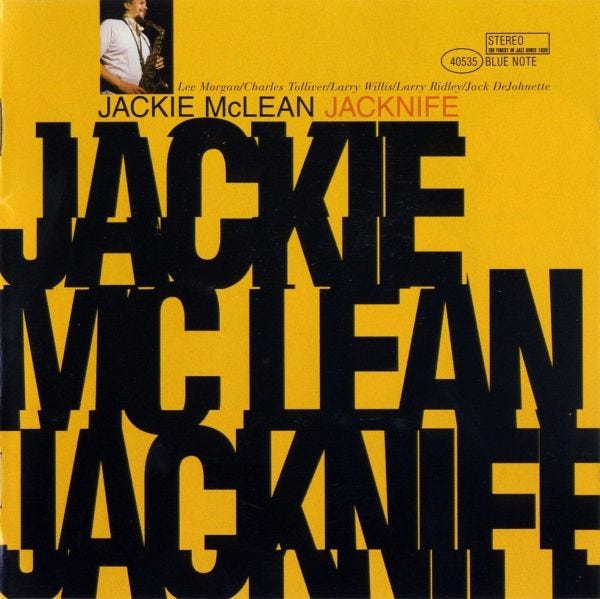
Horace Silver – The Tokyo Blues - Like Dexter Gordon’s Landslide, one’s enjoyment of this record can be hampered by reading too much about it ahead of time. There’s a bit of criticism that although Horace Silver was inspired by the melodies he’d heard while traveling in Japan, he hadn’t worn those on his sleeve ENOUGH when writing this album for some listeners. Who I’d guess would also be the most vocal complainers, saying, “he doesn’t sound like himself!” if he DID weave traditional Japanese melodies more obviously or prominently into the proceedings. Tomayto/Tomahto. I have a lot more fun listening and enjoying the album for what it is rather than focusing on what it isn’t (or what I think it should be). Musically, I’m happy to hear Horace Silver and his quintet doing what they do best—funky hard bop ‘n blues, with an occasional Latin flourish. Drummer Joe Harris, sitting in for an ailing Roy Brooks, does an ace job.
Horace Silver – piano
Blue Mitchell – trumpet (tracks 1–3 & 5)
Junior Cook – tenor saxophone (tracks 1–3 & 5)
Gene Taylor – bass
Joe Harris – drums
Jackie McLean – Jacknife - I know the hip thing to say is that I prioritize McLean’s more far-out records, and while I do love and appreciate those records, his mid-60s records do it for me differently. They’re a lot of freakin’ fun. There is plenty of depth, too—if “Poor Eric” from Right Now! doesn’t give you the feels, consider a factory reset. Jacknife comes from the same era. The release history is a bit convoluted and worthy of untangling in a more detailed post at some point. In the meantime, it’ll be cool to hear it as initially envisioned as an individual, standalone album. Here’s hoping Consequence is on the Tone Poet shortlist as well.
Jackie McLean - alto saxophone
Charles Tolliver (tracks 1, 3, 4), Lee Morgan (tracks 2, 3, 5) - trumpet
Larry Willis - piano
Larry Ridley - bass
Jack DeJohnette - drums
September 5, 2025

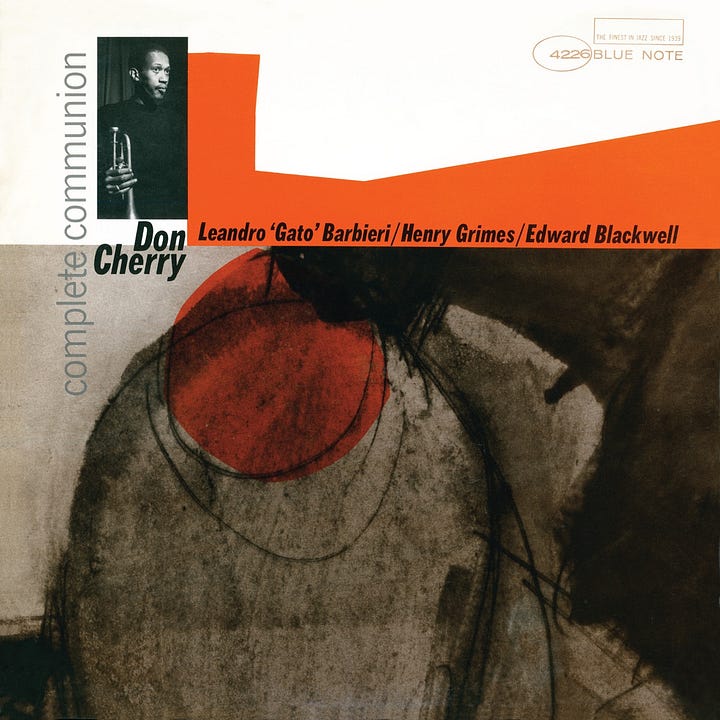
Chico Hamilton – Chico Hamilton Quintet - This quintet didn’t sound like most of their contemporaries. The classical influences that are a core part of the group’s DNA are front and center, though without diluting the swing. The cello and flute are used to tremendous effect. This title doesn’t come with the built-in name recognition of others in the Tone Poet 2025 lineup, but that doesn’t mean the music is an unknown quantity: plenty of people have seen either “Boogie Nights” (which has a synch placement for “The Sage”) or “Licorice Pizza” (which has one for “Blue Sands”) that will make it feel familiar. This could be the sleeper Tone Poet title of 2025.
Chico Hamilton - drums
Buddy Collette - tenor saxophone, alto saxophone, flute, clarinet
Fred Katz - cello
Jim Hall - guitar
Carson Smith - bass
Don Cherry – Complete Communion - When I worked at a mall Record Store (Sam Goody) in the 80s, the closing time was 9 PM. At 8:45, we “hinted” to lingering shoppers by rolling the security gate down 1/3 of the way (marked on the aluminum track by a Sharpie) and dimming 1/3 of the lights. At 8:50, we chose a record to play over the speakers embedded in the ceiling throughout the store to double down on the GTFO message. I cannot confirm or deny using this record in that situation—our library included a lot of…challenging music. But I’m not judging, just reporting. Objectively, it IS tricky to dance to this record, though.
Don Cherry - cornet
Leandro "Gato" Barbieri - tenor saxophone
Henry Grimes - bass
Edward Blackwell - drums
October 3, 2025
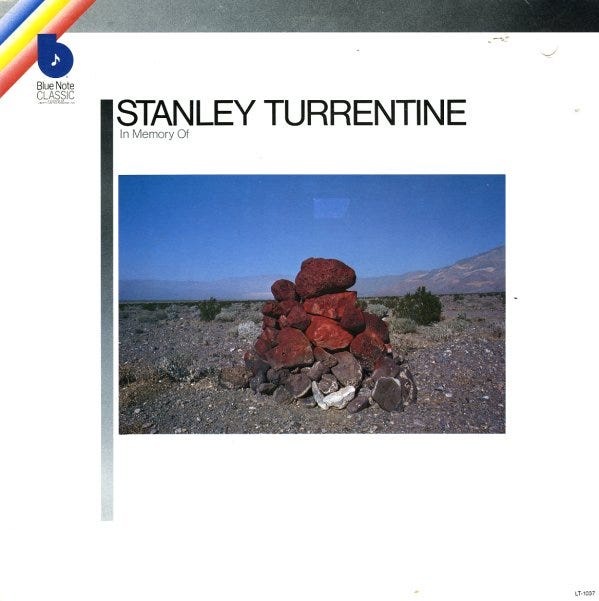
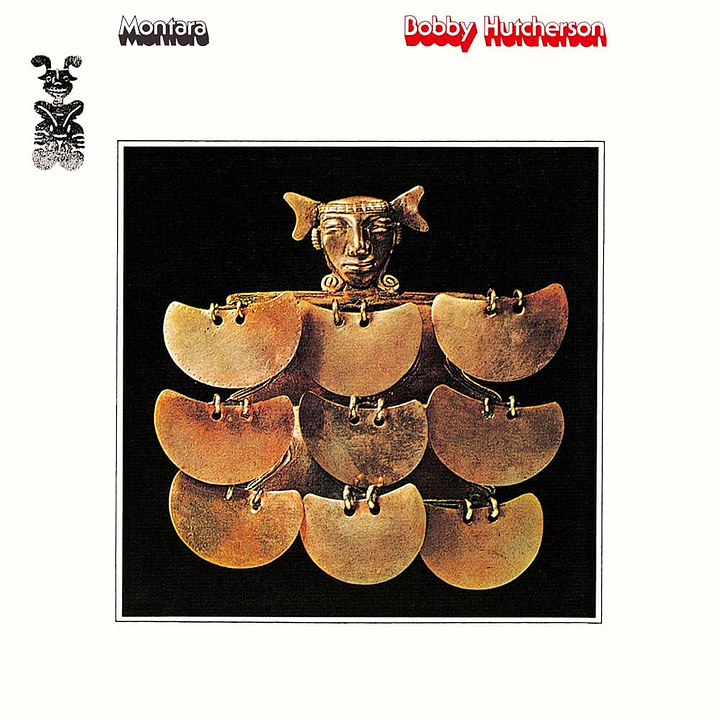
Stanley Turrentine – In Memory Of - Stanley “Mr. Prolific” Turrentine was cranking them out so fast in the mid-60s that Alfred had to use both hands to toss the reels into the Blue Note vault. I’m not saying every note emerging from Stanley Turrentine’s sax during the mid-60s was gold or that Blue Note executives didn’t have their reasons to slow the roll of Mr. Turrentine's product (among others) into the marketplace. But like last year’s Tone Poet release of Turrentine’s Mr. Natural, In Memory Of is a head-scratcher regarding the decision to vault—this record cooks, swings, and delights!
Stanley Turrentine - tenor saxophone
Blue Mitchell - trumpet
Curtis Fuller - trombone
Herbie Hancock - piano
Bob Cranshaw - bass
Otis Finch - drums
Mickey Roker - congas (1,2)
Bobby Hutcherson – Montara - The perfect summer evening record. The fusion vibes are strong with this one. It’s busy where it needs to be, often due to the sheer size of the band. They say two’s company, three’s a crowd. This album is either nine companies or six crowds, depending on how you want to do the math. The tune “Montara” is a modern crate digger standard. The Roots put their remix stamp on it in 1996, Madlib took a swing in 2003, and “Montara” samples appear on all sorts of hip-hop albums. It’s one of those grooves that gets into your head and won’t let go. Fender Rhodes fans may never stop listening.
Bobby Hutcherson - vibes, marimba
Oscar Brashear, Blue Mitchell - trumpet
Plas Johnson - flute
Ernie Watts, Fred Jackson, Jr. - tenor saxophone, flute
Eddie Cano - piano
Larry Nash - electric piano
Dennis Budimir - guitar
Chuck Domanico, Dave Troncoso - bass
Harvey Mason - drums
Bobby Matos, Johnny Paloma, Victor Pantoja, Ralph MacDonald, Willie Bobo, Rudy Calzado - percussion
November 7, 2025
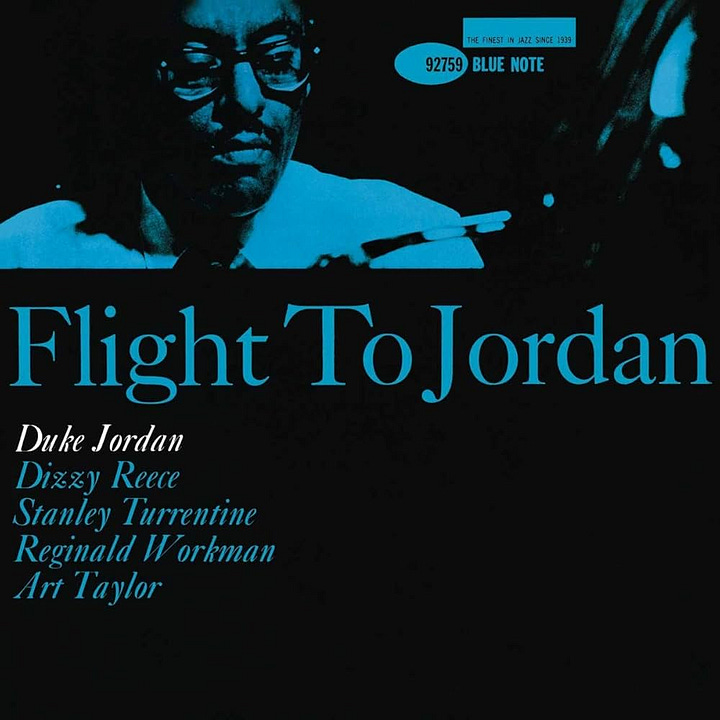
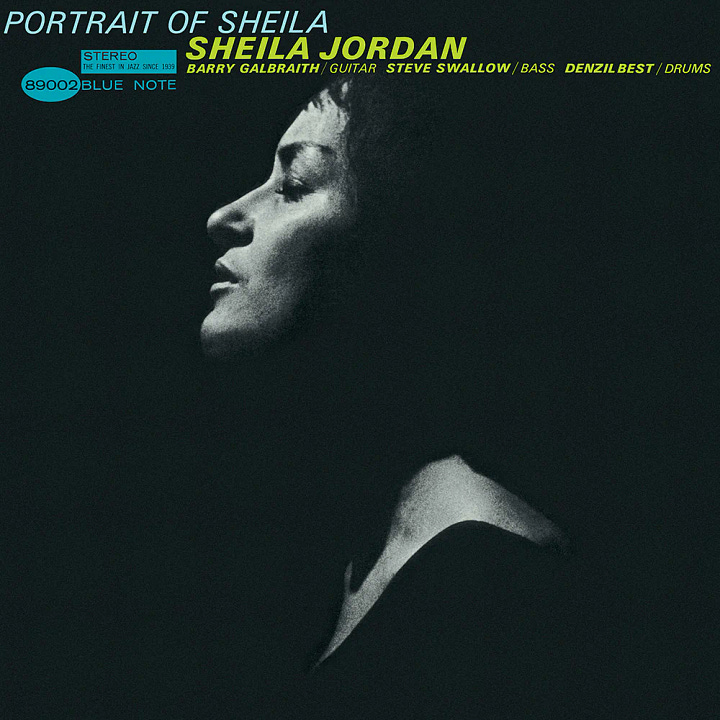
Duke Jordan – Flight to Jordan - Please don’t revoke my membership card. I’ve never owned a copy of this record <hangs head in shame>. But as a big fan of every musician on the cover, I’m looking forward to spinning it!
Duke Jordan - piano
Dizzy Reece - trumpet
Stanley Turrentine - tenor saxophone
Reggie Workman - bass
Art Taylor - drums
Sheila Jordan – Portrait of Sheila - I’m thrilled to see pioneering jazz vocalist Sheila Jordan’s debut album getting “the treatment” from the Tone Poet crew. This record belongs in every jazz library. As the only female-led title in this year’s lineup, I’d like to call your attention to the gender imbalance that continues to plague jazz and the wider music industry. In that context, I’m making a pitch to my fellow vinyl enthusiasts to please consider donating to Women in Vinyl, whose mission is to empower women, female-identifying, non-binary, LGBTQ+, BIPOC, and otherwise marginalized humans working in the industry to create, preserve, and improve the art of music on vinyl. Women in Vinyl is a registered nonprofit 501(c)(3) working to raise funds that support those above in starting their educational journey through scholarships, mentorships, job boards, business development, and workshops to create, preserve, and improve the art of music on vinyl.
Sheila Jordan – voice
Barry Galbraith – guitar
Steve Swallow – bass
Denzil Best – drums
December 5, 2025
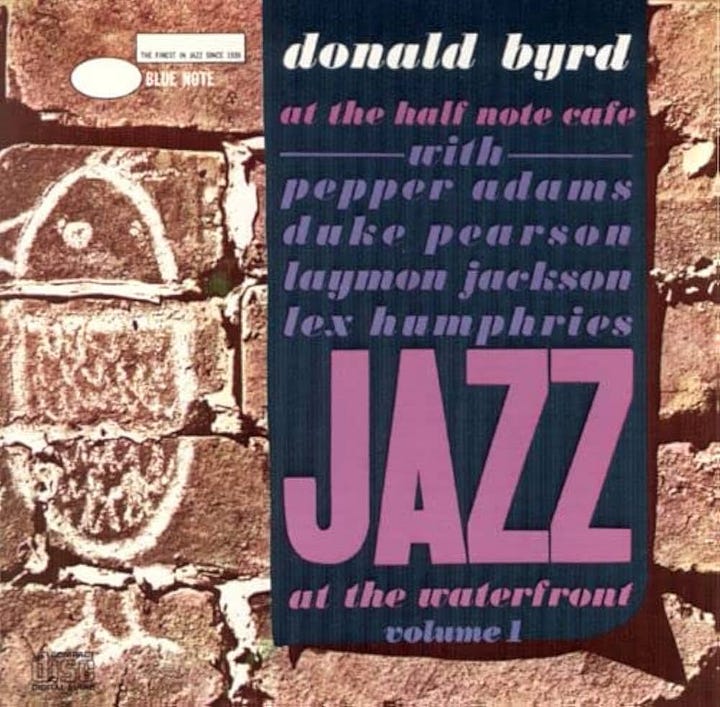
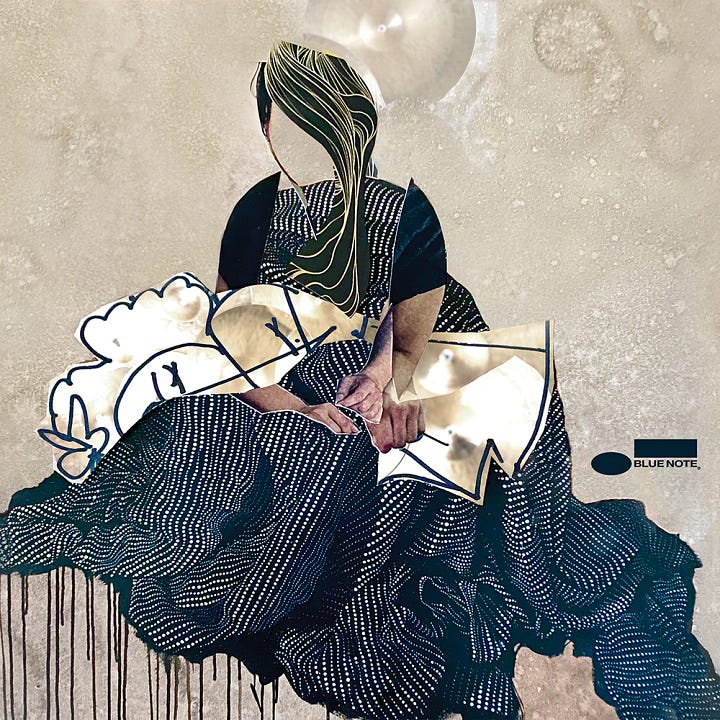
Donald Byrd – At The Half Note Café, Vol. 2 - You know what to expect if you’ve been enjoying Vol. 1 for the past few years. Wait a minute…you haven’t gotten around to picking up Vol. 1 yet? Well, start there and then get yourself stoked for Vol. 2. I’ve been looking forward to this release. Hearing Duke Pearson throwing down on the bandstand is terrific. I have such deep respect for his work as an arranger, studio pro, pianist, bandleader, and A&R executive, and it just WOWS me that he can also get up there and freakin’ WAIL. It's a great recording of a splendid band on a hot night.
Donald Byrd – trumpet
Pepper Adams – baritone saxophone
Duke Pearson – piano
Laymon Jackson – bass
Lex Humphries – drums
Jonathan Blake – Homeward Bound - I’ll have lots to say about the Pentad Quintet and Jonathan Blake’s Homeward Bound later on, but for now, I’ll leave you with the closing track. It’s a cover of a favorite tune by a favorite artist—Joe Jackson’s “Steppin’ Out.” It would’ve been an excellent prom theme. I can’t believe the committee chose Phil Collins's “One More Night.” Then again, I wanted something by Don Cherry.
Jonathan Blake - drums
Joel Ross - vibes
Immanuel Wilkins - alto saxophone
Dezron Douglas - bass
David Virelles - keyboards
So there you have it, the 2025 lineup of Tone Poet releases from Blue Note. As I mentioned at the beginning, Walter Davis Jr. Davis Cup is the first exclusive title in the Tone Poet Society subscription series, expected Q1. We can look forward to the big reveal of the remaining three titles in the coming months and, before that, the lineup of the 2025 Blue Note Classic titles. There’s never been a better time to be a jazz vinyl enthusiast!





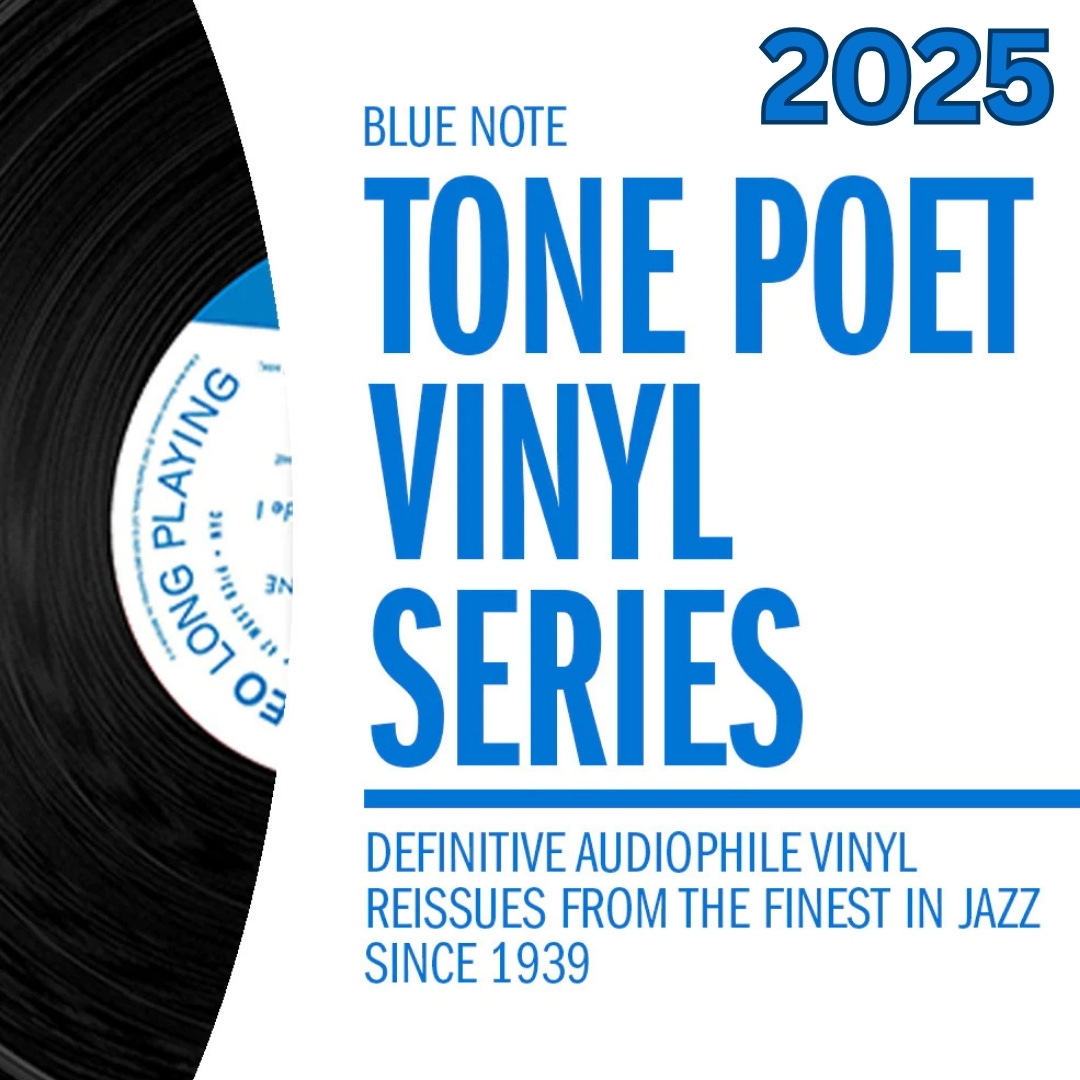
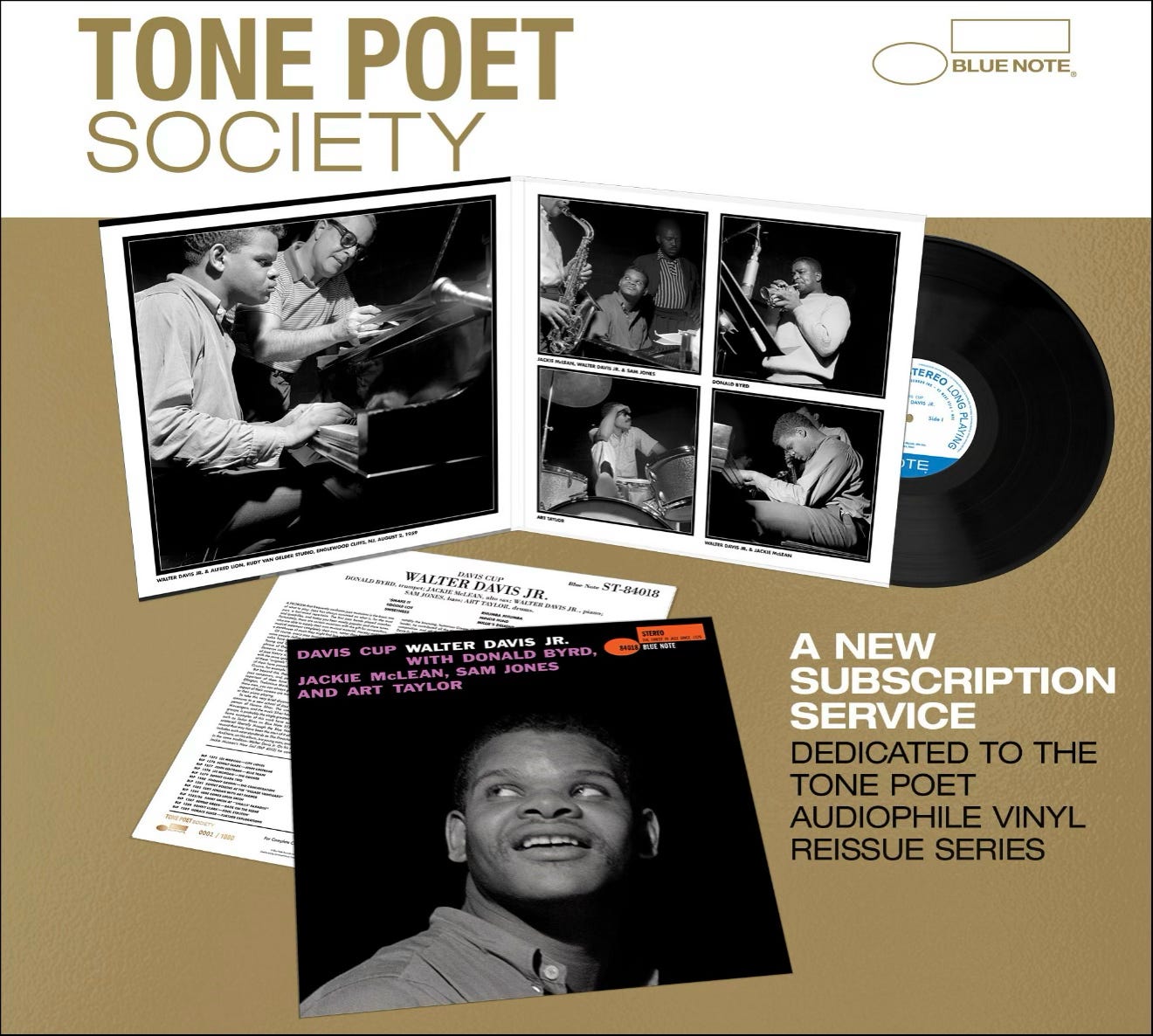

What differentiates the Tone Poet series from other recent reissues ?
I performed "The Tokyo Blues" with a jazz combo back in college, so that record has a special place in my heart